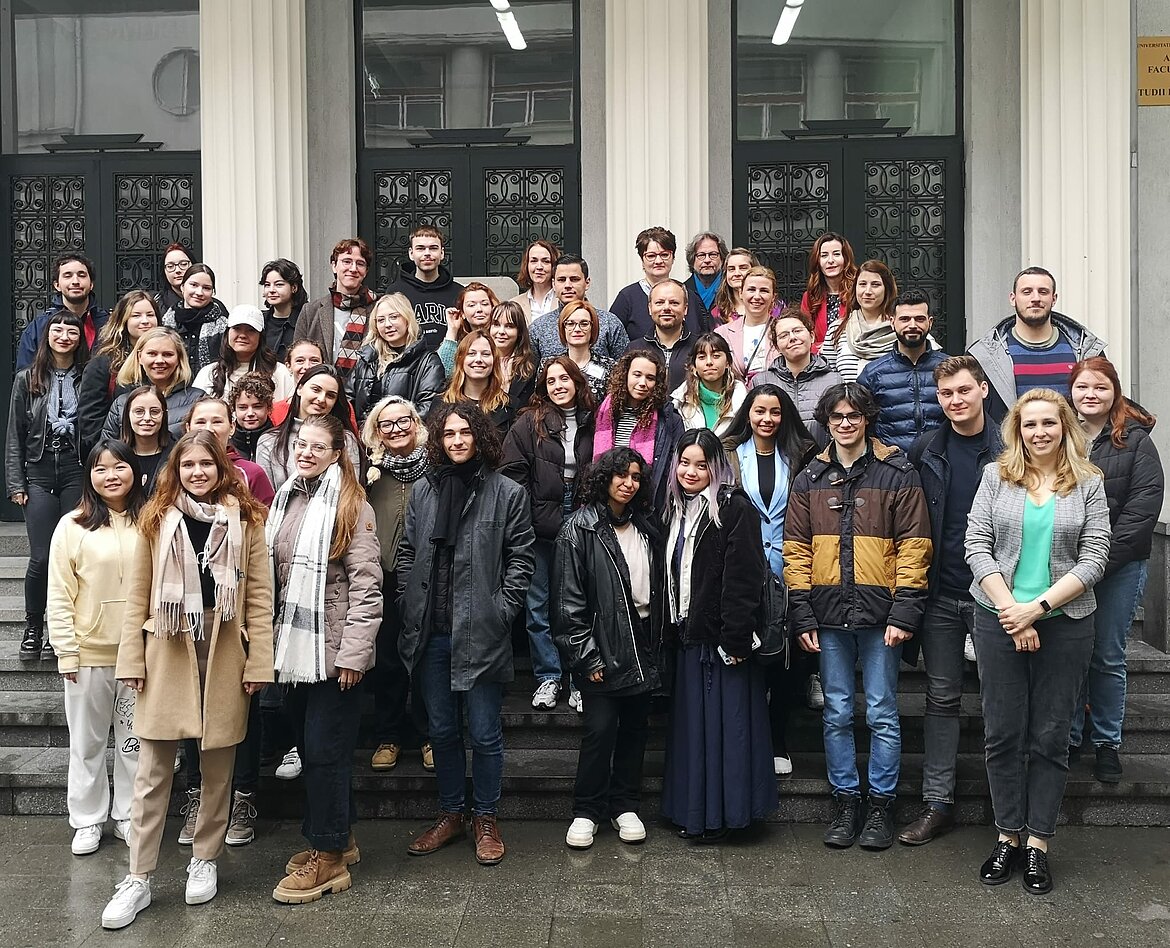DIAL4U intensive programme for students (LTTA2) was a success!
The LTTA2 took place in Cluj Napoca, from the 27th to the 31 of march and students and teachers from all the universities partners participated to it!
A 5-day intensive programme for higher education learners (LTTA2 : Training activity), untitled Digital pedagogy and teaching-learning of Foreign Languages BarCamp, was recently held at the University of Babeş-Bolyai in Cluj-Napoca, Romania, from 27th to 31st March 2023. The event brought together 40 students with diverse cultural and ethnic backgrounds who have interest in improving foreign language performances through digital learning. In addition to the 40 students (5 from each of the eight partner universities), teachers and staff members of the partnership traveled to meet the students and facilitated workshops.
The aim of the intensive programme was for the students to test and evaluate the resources and innovative methodologies developed by the Teachers-Researchers of the partnership during the last 18 months.
To do so, higher education learners participated in various workshops and BarCamp sessions, which facilitated the exchange of ideas and allowed discussion of teaching and learning practices.
The participants were divided into four workshops, each related to the 4 main activities (Intellectual outputs) of the DIAL4U project:
- Workshop 1: This workshop focused on designing effective online language learning environments using innovative technologies such as online discussion platforms, virtual reality, and social networks.
- Workshop 2: This workshop addressed the evaluation of virtual language learning, by exploring the gaming prototypes developed by Malmo University students. This workshop focused on aspects such as pedagogical approach, user-friendliness, and learning interaction.
- Workshop 3: The aim of the third workshop was to explore information and communication technologies (ICT) that can be used to teach foreign languages, including online educational games, social networks, and distance learning platforms.
- Workshop 4: This workshop provided an overview of Open Badges and micro-certifications, and their potential applications for recognizing and validating learning achievements and skills. The students explored examples of how Open Badges and micro-certifications are being used in Europe for education, professional development, and personal growth.
Each workshop was held by one of the partner institutions in charge of the respective Intellectual Output. The results and feedback of this training activity are currently analyzed by the Partners, and continuous improvements of the project results will be at the center of May 5th Steering Committee’s discussion.
In addition to improving digital pedagogy and foreign language learning, this erasmus+ programme also aimed to promote intercultural understanding among the participants, as they offer opportunities to explore and learn about different cultures, perspectives, and communication styles.
By bringing together learners and teaching staff from different countries, the programme facilitated a collaborative and inclusive learning environment.
As a participant of the LTTA2 programme myself, I can tell that the programme has been an enriching experience for me. It has exposed me to various language learning tools that can be applied not only in language classes but also in other domains, such as making meetings more engaging and interactive. Furthermore, this program provided me with a valuable opportunity to connect with students from the 8 partner universities, fostering personal growth and intercultural understanding.
Manon Chieux,
University of Lille
manon.chieux.etuuniv-lillefr


